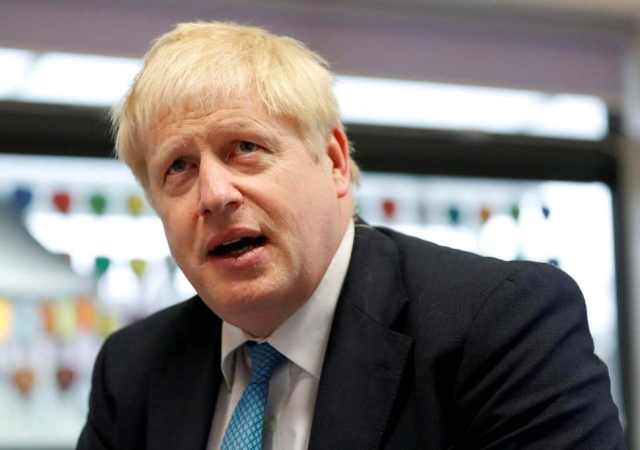In a major blow to China over poor coronavirus transparency, the UK is moving to drop Huawei as a vendor for the country’s 5G cellphone network.
Prime Minister Boris Johnson, now recovering from COVID-19, gave the Chinese company a role in 5G infrastructure this year, squashing opposition last month by 24 votes in the 650-seat House of Commons.
But now, concern about the Chinese Communist Party’s inaccurate reporting on the coronavirus has lawmakers crafting plans for a retreat.
“We need to devise a proper, realistic exit strategy from relying on Huawei,” Conservative Member of Parliament Damian Green said. “Our telecom providers … need to know the government is determined to drive down Huawei’s involvement to zero percent over a realistic timescale.”
“The mood in the parliamentary party has hardened,” said Tom Tugendhat, the Conservative Party’s chairman of the House of Commons Foreign Affairs Committee.
“It’s a shared realization of what it means for dependence on a business that is part of a state that does not share our values,” Tugendhat said.
US Secretary of State Mike Pompeo said Friday that the pandemic originating in China shows why countries should avoid doing business with Huawei. President Trump suspended US funding for the World Health Organization this week, alleging it circulated false Chinese data on COVID-19, leaving other nations unprepared.
The US viewed Johnson’s decision on Huawei as a major blow to the “five eyes” electronic surveillance alliance among the US, the UK, Canada, Australia and New Zealand. US officials fear China could use Huawei to collect intelligence.
The UK has the world’s sixth-largest publicly acknowledged outbreak of the virus, with about 110,000 cases and more than 14,600 deaths.
White House coronavirus coordinator Dr. Deborah Birx said at a recent press briefing that Chinese data in January led experts to believe the virus was less contagious, akin to the related virus SARS, leading to less concern among health officials.
China increased its reported deaths from outbreak epicenter Wuhan by 50 percent on Friday.
UK foreign minister Dominic Raab said Friday that “we can’t have business as usual after this crisis,” vowing “hard questions” for China and a “very, very deep dive” on the origins of the pandemic.
UK plans to drop Huawei as 5G vendor, citing China coronavirus transparency






